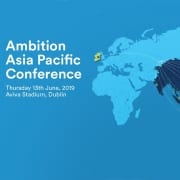Cubic Telecom is Helping Germany’s Biggest Carmakers to Drive Forward
 “Enterprise Ireland is always extremely helpful in terms of providing meeting space and setting up partner meetings, finding out beforehand who we want to make contact with and enabling those briefings at the show.”
“Enterprise Ireland is always extremely helpful in terms of providing meeting space and setting up partner meetings, finding out beforehand who we want to make contact with and enabling those briefings at the show.”
 Gerry McQuaid, CCO Cubic Telecom
Gerry McQuaid, CCO Cubic Telecom
Overview:
Case Study: Cubic Telecom
In an always-on world where consumers expect instant access to information and experiences, car manufacturers are clamouring to ensure that 24/7 connectivity is provided behind the wheel — and Dublin-based Cubic Telecom is supplying the solution.
Cubic’s global connectivity platform PACE enables cars and other devices to automatically connect to high-speed local mobile networks around the world. The company is a fully licensed mobile services provider powering high-quality connectivity worldwide for global manufacturers, including six brands within Volkswagen Group, e.GO Electric Vehicles and Panasonic Automotive, among others.
Not to mention, Cubic’s connected car solution supports 2.5 million cars in 93 markets globally, with capabilities across Europe, North America, Latin America, the Middle East, Russia, Africa and Asia-Pacific.
“Our focus spans wider than the Irish market,” reveals CCO Gerry McQuaid, who has been part of the Cubic Telecom team from its beginning in 2009. “Obviously we support the sale of our partners’ products in Ireland but we are focused on the global market and we have had that global focus from the start.”
But scaling internationally requires more than identifying a global customer base and Gerry says Enterprise Ireland’s assistance has been critical in helping Cubic to forge strategic partnerships every step of the way.
Powering global connections
When Cubic Telecom made its first foray into the international market, it was with a SIM card that let travellers make low-cost phone calls from anywhere in the world without incurring huge roaming charges. But the company soon switched gears to focus on creating technology that would connect any device to the internet while abroad and in 2012 took part in a major trade mission to China, helmed by Enterprise Ireland and then Taoiseach Enda Kenny.
“Enterprise Ireland helped to arrange private meetings in China with the Taoiseach which gave a fantastic boost to our fledging profile in China,” Gerry says, noting that the trip ultimately helped to cement our business relationships with Qualcomm, Lenovo and China Unicom.
At the same time, demand for vehicle connectivity was on the rise. Automakers wanted to transform cars into infotainment centres on wheels and Cubic Telecom’s technology, which is embedded at the manufacturing stage, could enable standardised vehicles to offer connected services anywhere in the world.
“We’ve always attended MWC and exhibited as part of Enterprise Ireland’s pavilion stand. That’s where we meet our customers, prospects, mobile operator partners, technology partners and important industry analysts every year,” Gerry says. “We are delighted with the support provided to us by Enterprise Ireland in regard to exhibition stand facilities and the arrangement of key meetings ahead of each event.”
Cubic’s first auto contract was with German car giant Audi, which was looking to provide its drivers with a fully digital experience — something that traditional mobile operators were struggling to achieve.
“We were delighted to partner with the leading automotive brand within Volkswagen Group and this partnership has been an intrinsic part of developing our business success in Germany,” Gerry says.
As a result, Germany is one of Cubic’s biggest overseas markets.
“It’s important to point out that we did not select Germany as a generic target market,” Gerry says. “Instead, we looked at the world’s biggest automotive manufacturers and decided which companies we wished to build a partnership with. This naturally led us to Germany, the home of some of the world’s top auto manufacturers. We were very careful to take the time to understand what is required to do business successfully with large prestigious German companies and we had excellent support from the Enterprise Ireland team in Germany.”
Enterprise Ireland still works closely with Cubic Telecom to support its continued growth in other international markets.
“As well as being part of Enterprise Ireland’s pavilion at MWC Barcelona annually, last year we participated with Enterprise Ireland in MWC Americas in Los Angeles for the first time. That proved to be a great success,” shares Elaine Murray, Cubic Telecom’s External Communications Manager, adding, “Enterprise Ireland is always extremely helpful in terms of providing meeting space and setting up partner meetings, finding out beforehand who we want to make contact with and enabling those briefings at the show.”
Besides trade shows and networking opportunities, Cubic Telecom is often invited to sit on conference panels hosted by Enterprise Ireland, which Elaine describes as “integral” to the company’s exposure in foreign markets. Gerry agrees: “We’re always more than happy to participate because it’s a win-win situation.”
Brazil, Brexit and beyond
One of the next stops on Cubic’s path to world domination is Brazil, a notoriously tough nut for non-Brazilian car manufacturers to crack in terms of IoT connected device services.
“We have received excellent advice from Enterprise Ireland to assist with setting up our local presence in Brazil,” Gerry says. “Like in Germany, we align ourselves with the markets that our customers have prioritised. As all of the world’s major automotive companies want to sell connected cars in Brazil, we prioritised establishing a unique locally compliant solution for global automotive and IoT companies there.”
Speaking of complicated, while the UK is not a dominant market for Cubic, it is an important one for many of the company’s customers.
“If you’re driving on the motorways in the UK, most of the cars are German-built cars, so Brexit does have a concern for us in terms of what’s going to happen to the ease of doing business but we’re not as exposed as other companies because we are used to dealing with complicated market conditions around the world,” Gerry says.
His advice: Irish companies must reduce their dependence on the UK market, regardless of the Brexit outcome.
“Any Irish company that’s trying to do business in overseas markets has a very valuable resource that is always there to help in Enterprise Ireland,”
“Start by considering the needs of the customer you are selling to, what solution you are selling, who you need to sell it to and what markets those target customers are in. Then leverage the Enterprise Ireland regional offices to get introductions to the people in that market who you need to meet.”
Read more on the supports available to help your business diversify into new markets or speak to your Development Advisor today.



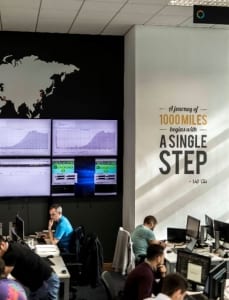




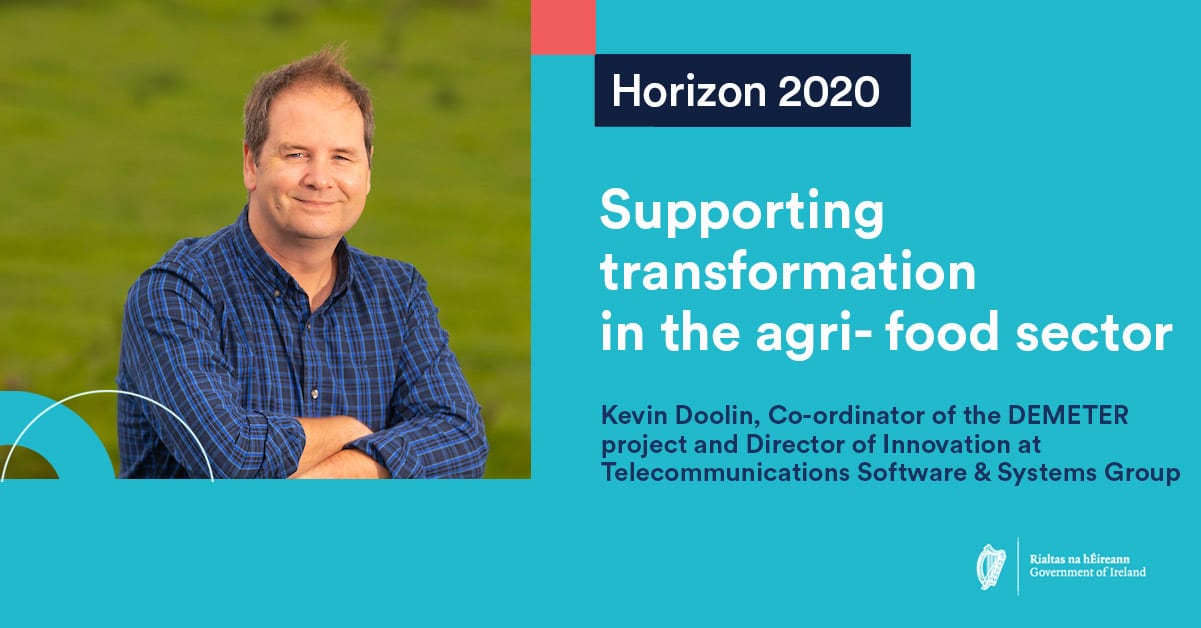
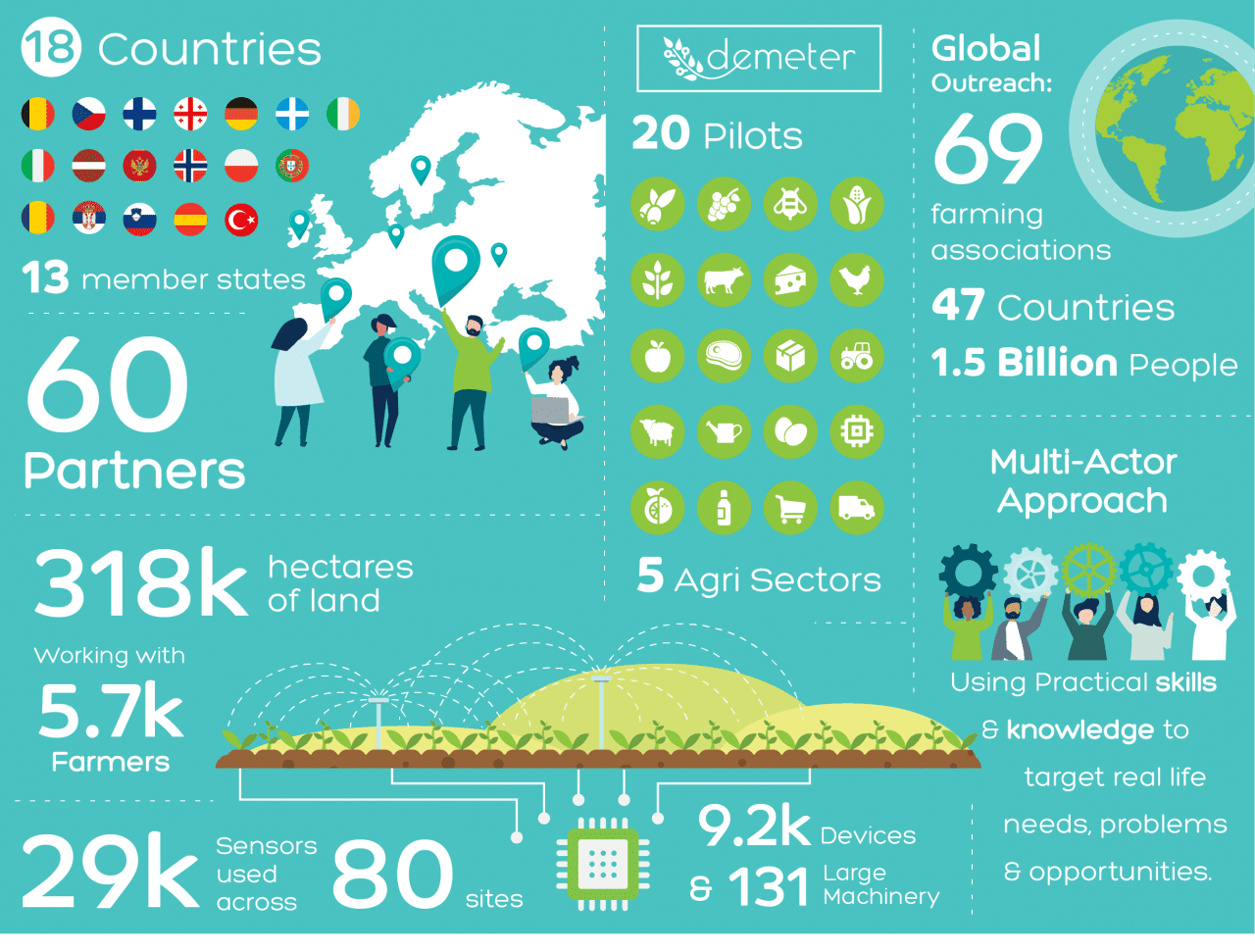

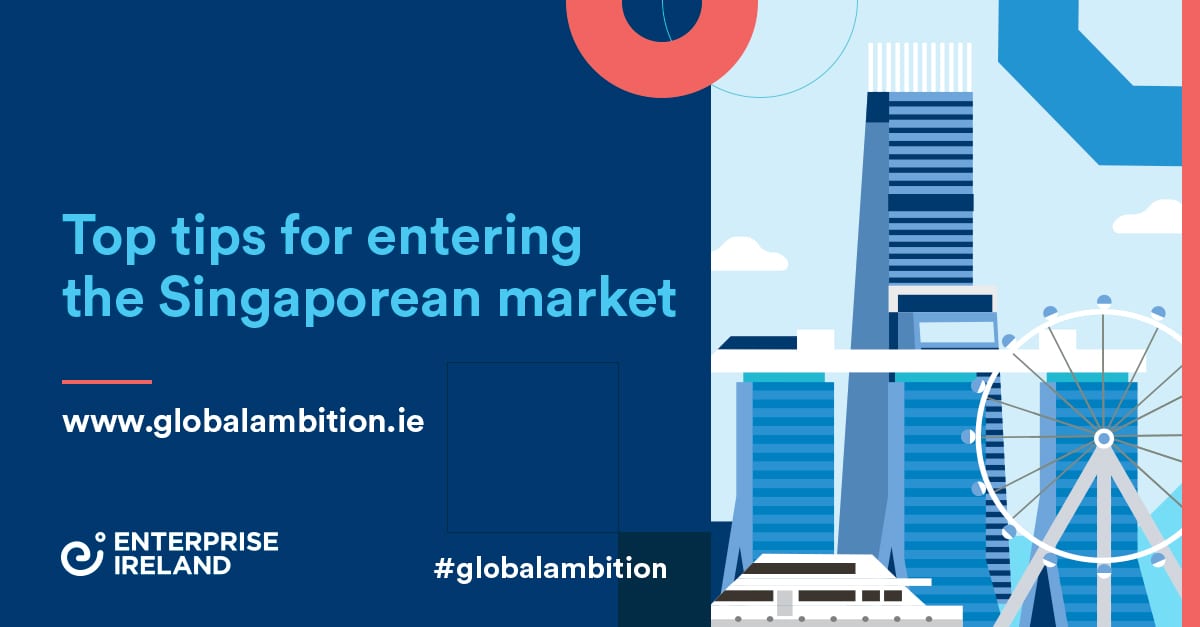
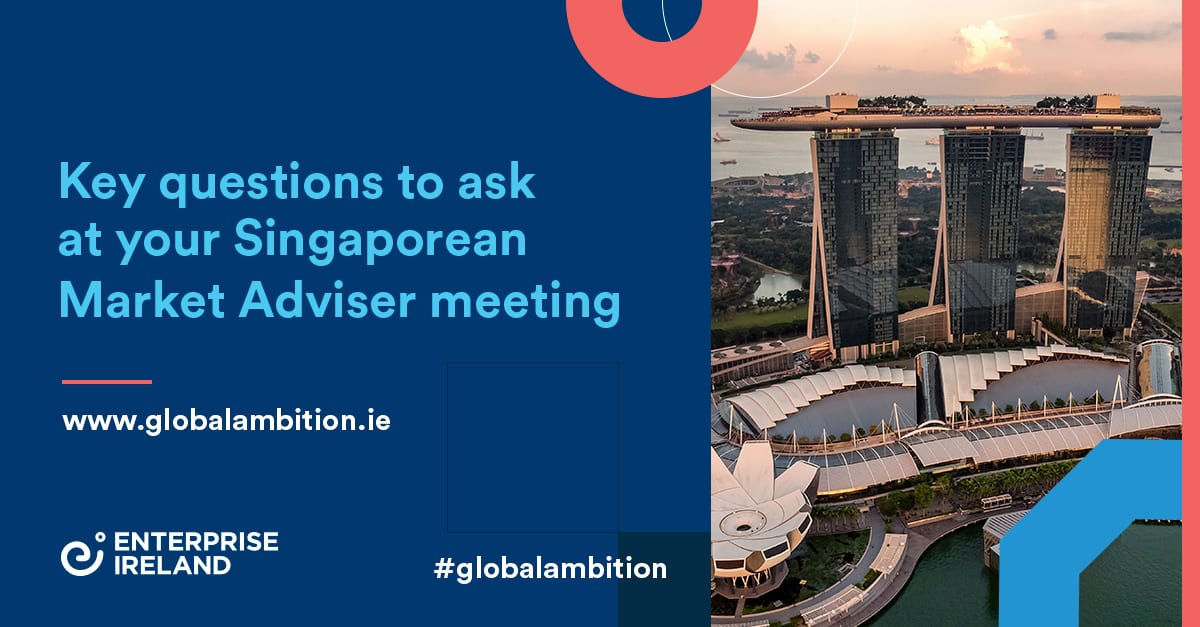

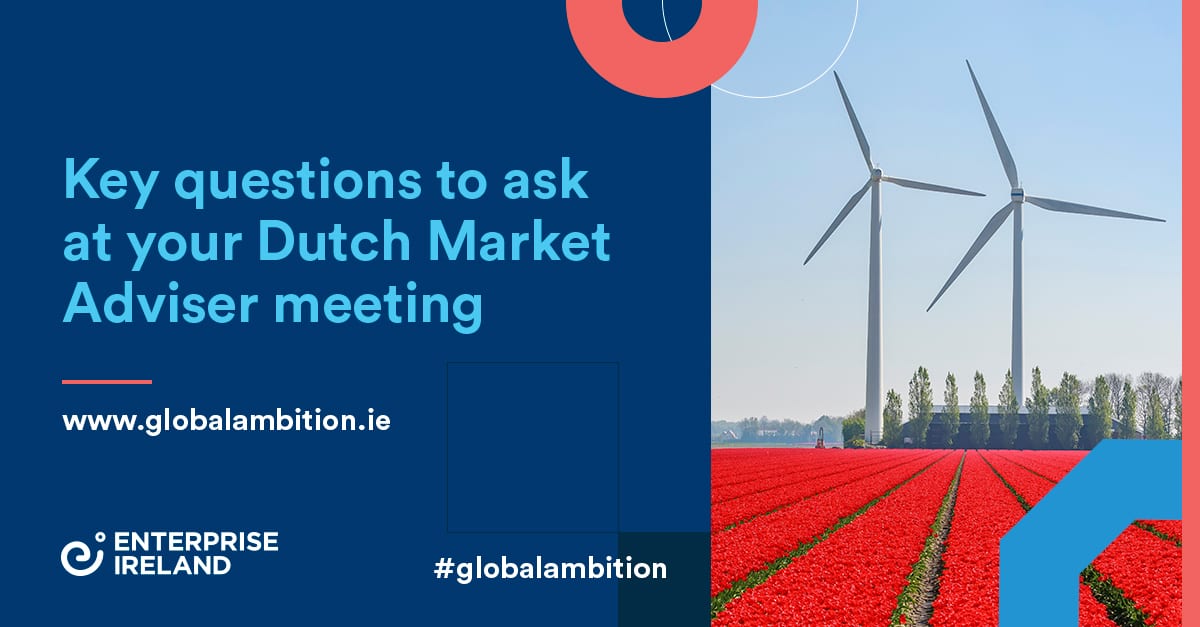
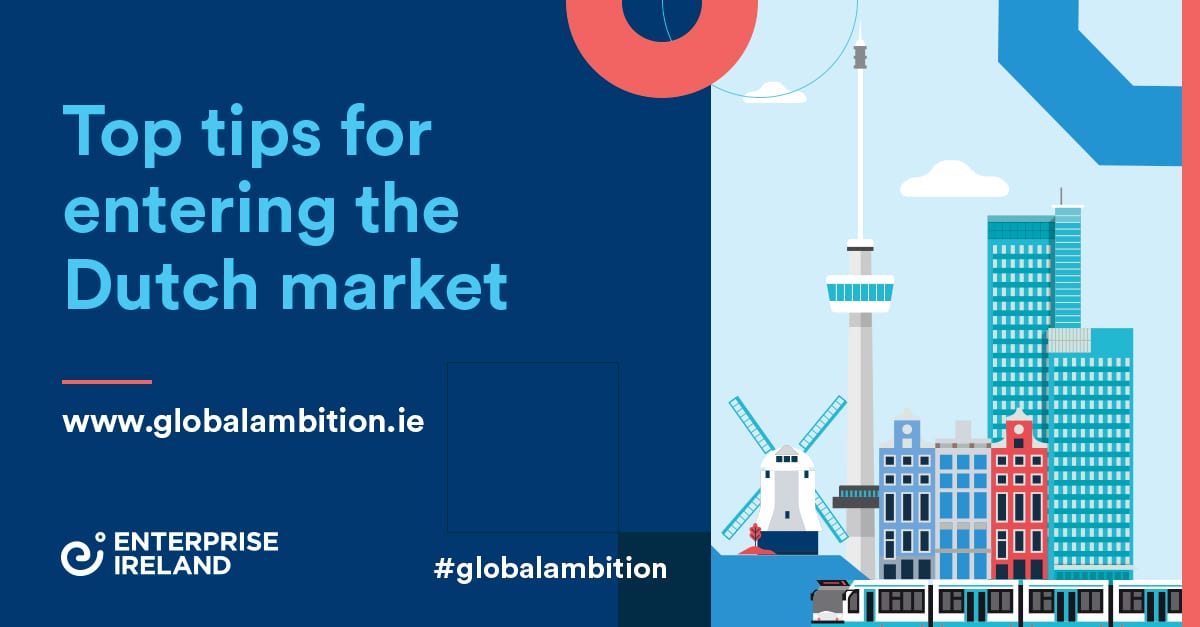


 With the help of
With the help of 


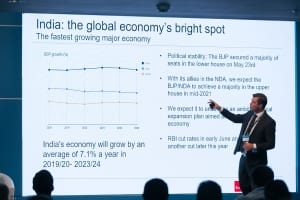
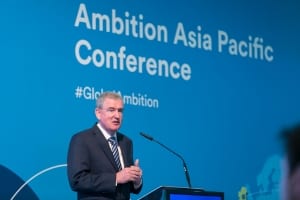 For Irish businesses looking at these markets, either as part of their supply chain or as end markets, it’s worth keeping an eye on regulatory initiatives in relation to either, he said.
For Irish businesses looking at these markets, either as part of their supply chain or as end markets, it’s worth keeping an eye on regulatory initiatives in relation to either, he said.